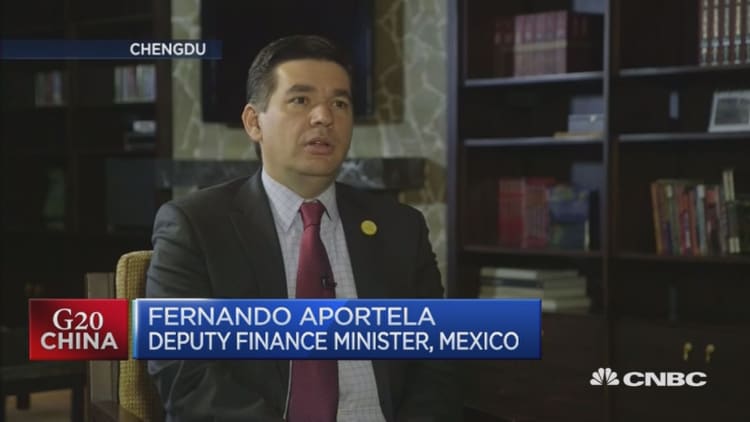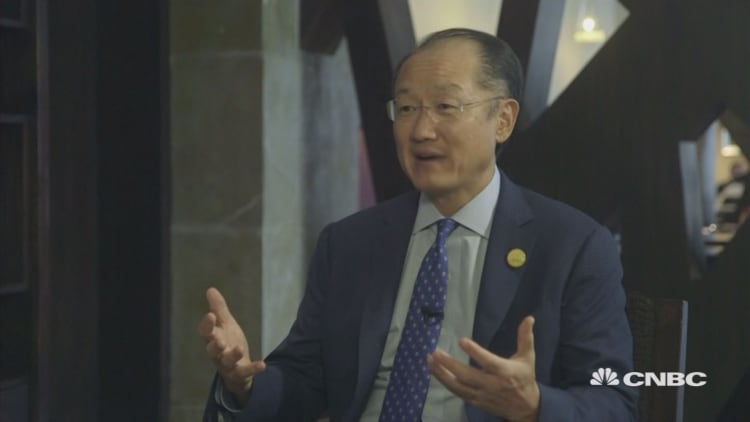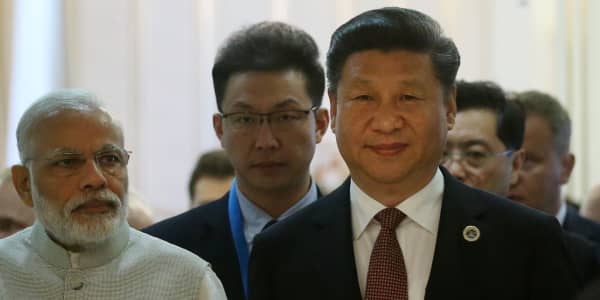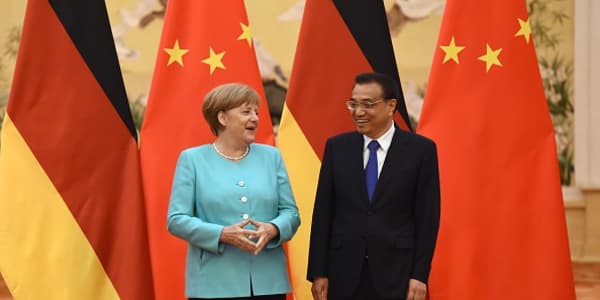
Anti-trade rhetoric might be growing across the globe, but finance ministers from the G-20 group of nations are trying to play down its importance.
Mexico's Deputy Minister for Finance, Fernando Aportela, told CNBC that he's not concerned about the impact on the country's relationship with the U.S.
"What we see is that the relationship between Mexico and the U.S. is much more than the relationship of the two governments," Aportela said on the outskirts of a G-20 meeting in Chengdu, China on Saturday.
He added that the integration of communities and business people is strong, and is perhaps the more crucial factor for the U.S.-Mexican relationship.
'Double down on trade'
Meanwhile, Australia's Treasurer Scott Morrison also told CNBC that "we have to double down on trade" and that his G-20 counterparts were echoing those sentiments.
Morrison acknowledged that pursuing a free trade agenda at a time of challenging growth prospects would not be an easy sell in their home markets.
Morrison said: "In our recent election, we took our free trade approach to our election and we were successful, so these things can be done and it's important that we do them because if we don't, an open and free trading economy like Australia, if we don't see the increases in world trade that we'll like to see, that will limit our opportunities."
'Damage in the long term'
U.S. Republican Presidential Nominee Donald Trump has fueled the growing anti-globalization stance, with a campaign that has focused on a protectionism platform.
Multilateral organizations like the World Bank and the Organization for Economic Cooperation and Development (OECD), have been quick to take a stand on free trade.

The World Bank President Jim Yong Kim said: "You can't end poverty without more trade, not less trade. I'm very concerned about it and I think all of us in the multilateral system have to really speak out about how important it is to continue the process of global integration, of trading with others."
OECD Secretary General Angel Gurria told CNBC in Chengdu that since the global financial crisis in 2008, there have been 1,500 different "protectionist" measures that he has seen, indicating a reversal to the free trade agenda.
"I think those of us who have been around long enough know that succumbing to the short termpressures of protectionism in a slow growth or sometimes even negative growth scenario temporarily, will damage you in the long term," Gurria said.





